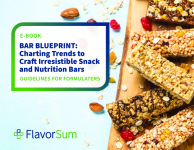AB Enzymes launch targets improved biscuit baking
can help reduce problems such as browning and cracking, the
manufacturer claims.
AB Enzymes, a Germany-based subsidiary of ABF ingredients, said that the new proteases Veron HPP and Veron S50 will be used in particular by manufacturers of long-life baked products such a biscuits and crackers.
A protease is a type of enzyme that breaks down proteins into peptides or amino acids.
Enzymes are commonly used in the baking industry, as they can improve the quality of the product, for example by creating a more consistent dough quality and texture, or lengthening the shelf life of the final product.
According to AB Enzymes, the new proteases do fulfil these objectives, as Veron HPP can be used by manufacturers to reduce the time needed for the dough to rest.
Furthermore, both proteases improve dough extensibility, the company claims.
Dough that is overly handled and stretched - or extended - leads to cracks and tears, so using the protease reduces the number of biscuits that are thrown away due to imperfections, which could save the manufacturer time and money, said AB Enzymes.
"The final products have an improved quality, for example a pleasant brown colour, smooth surface, round edges and products of the desired packaging size and weight," said sales development manager Norman Burkadt.
The AB Enzymes claims Veron S50 is cost effective as it can be used in conjunction with cheaper, commercially available flours.
However, the firm did not respond to calls for additional information on cost savings prior to publication.
As well as the cost advantages, AB Enzymes claims that Veron S50 offers healthier reformulation options, as it can be used to replace Sodium Metabisulphate, a food additive linked to allergies such as eczema and asthma.
The global market is forecast to reach almost $1.2bn by 2011, according to analysts The Freedonia Group, with bakery enzymes predicted to be one of the strongest selling groups.
New enzyme products launched on the market in recent months include Novozymes' asparaginase enzyme aimed at reducing the formation of acrylamide in baked and fried foods, called Acrylaway, and DSM's 'Let's BakeZyme' range.
Its microbial phospholipase CakeZyme, part of this range, is said to enhance the emulsifying properties of eggs, reducing egg use by up to 20 per cent and cutting costs.
Novozyme currently holds 26 per cent of the total enzyme market, while Danisco, Genzyme, Roche, Allergen, DSM and BASF have a 36 per cent share between them, the Freedonia Group said.
















